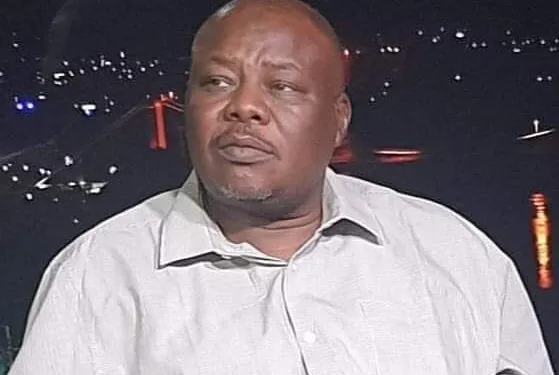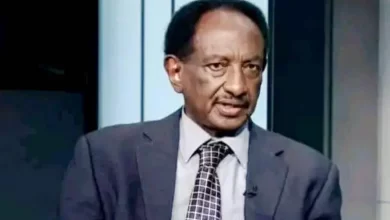The Army’s Latest Alliance!!

Ashraf Abdul-Aziz writes… The Army’s Latest Alliance!!
The Sudanese army is clearly dealing with the ongoing war in Sudan using (different tactics), but its making is mostly security-related rather than political. Therefore, changing (tactics) from one stage to another faces challenges and conflicts of alliances that the army has woven in the period preceding the change.
The overwhelming appearance of the Armed Movements on the scene in recent days was not thoughtless, but rather it was the appropriate moment in time where the army commander-in-chief, Abdel Fattah Al-Burhan, decided to propel Minnawi, Jibril, Malik Agar and Tambour into the battle furnace. Simultaneously, Jaafar Al-Mirghani appeared in Shendi, standing in the middle of a crowd of army soldiers. It is perhaps the first time that Jaafar stands amidst such heavily armed soldiers, and publicly declares that any political forces that take a neutral stance are not on the right path.
This, coupled with the earth-shattering statements made by the Deputy Commander-in-Chief of the Armed Forces, 1st Lt. Gen. Shams al-Din Kabbashi, regarding the situation with the popular resistance and his refusal to exploit it politically. Rather, issuing orders to the command of the garrisons not to arbitrarily arm the public, which significantly contradicts previous statements made by the Commander-in-Chief of the Army, Al-Burhan, who urged the citizens to use any means necessary to arm themselves and protect their honor and properties.
Al-Burhan has certainly now realized that his statements will remind the international community of the part he played in the mobilization of tribes in Darfur’s civil war. Therefore, he made haste of canceling the name of the Mobilization Committee, and delegating the task direct speech to his deputy Kabbashi, who was then faced with a campaign of widespread criticism from supporters of the popular resistance, most of whom were Islamist activities, whilst media personnel loyal to them unleashed their anger on Jaafar Al-Mirghani, mocking his appearance amidst the Army Forces.
Clearly, the Islamists allied with the army realized that its leadership would not allow them complete control and that it responded to external pressures exerted on them, and thus (they reap thorns, ultimately, in this absurdity of a war). Cairo has since fluctuated in its positions and sought to support the army in a de facto manner and therefore propelled its allies (Jaafar Al-Mirghani, Minnawi and Jibril) to let tribal leader Terik assume the leadership of the Popular Resistance in the Red Sea. This is the newly formed alliance with which the army will seek the next settlement some other political forces may accept and perhaps the Rapid Support Forces.
The remaining link between the army and the Islamic Movement is far more feeble than a spider’s thread, and even the Islamic Movement’s extremists have felt it. Their reaction exceeded the boundaries of mere criticism to attacking the army leadership. Therefore, diminishing the Islamists’ capabilities to mere knowledge about everything that was going on inside the army and its future intentions. Whereas previously, they had possessed the power to obstruct all steps that would lead to a solution that does not conform to their visions, only this time the knot is broken and the sole alternative is to bow to the storm.
Quoted from Al-Jareeda newspaper





